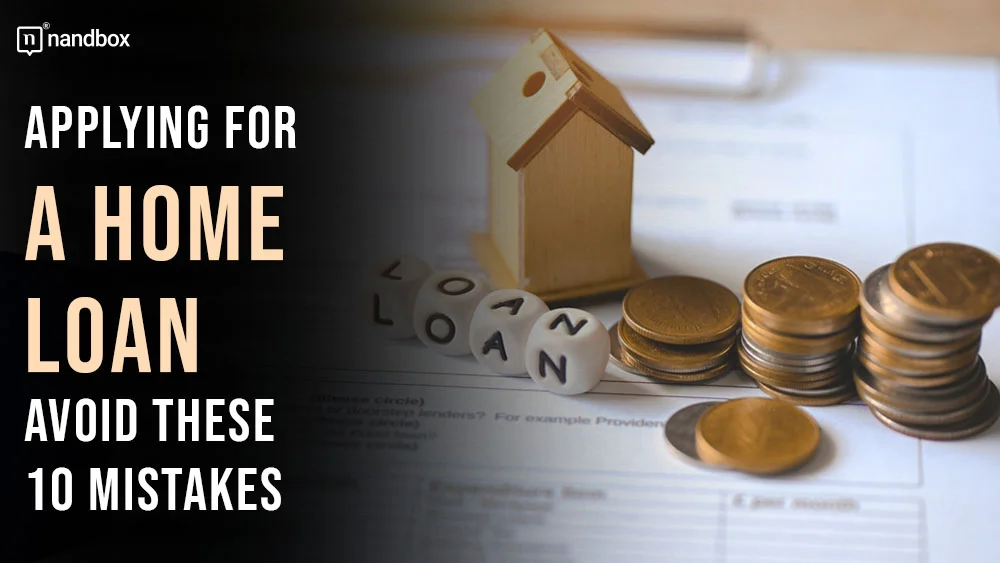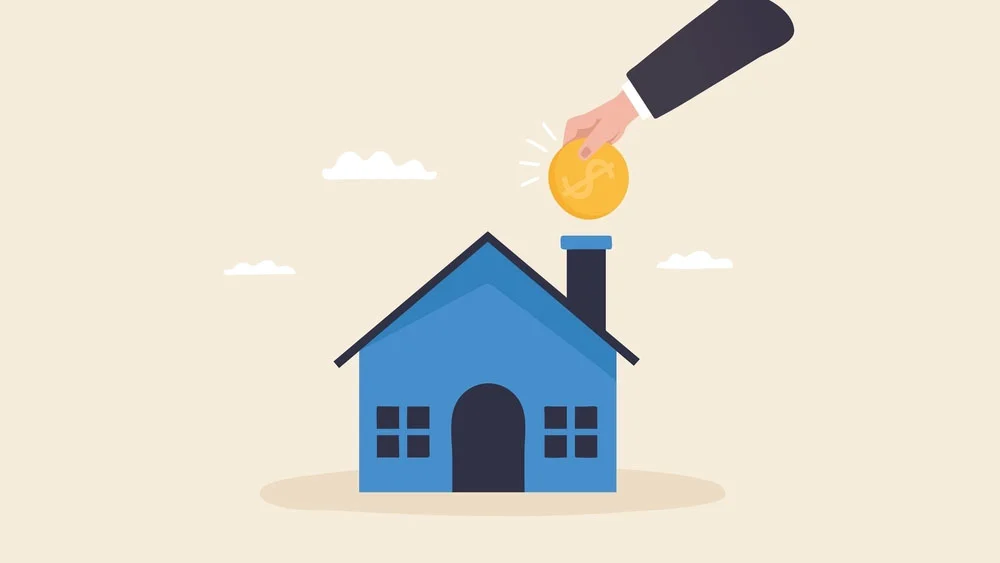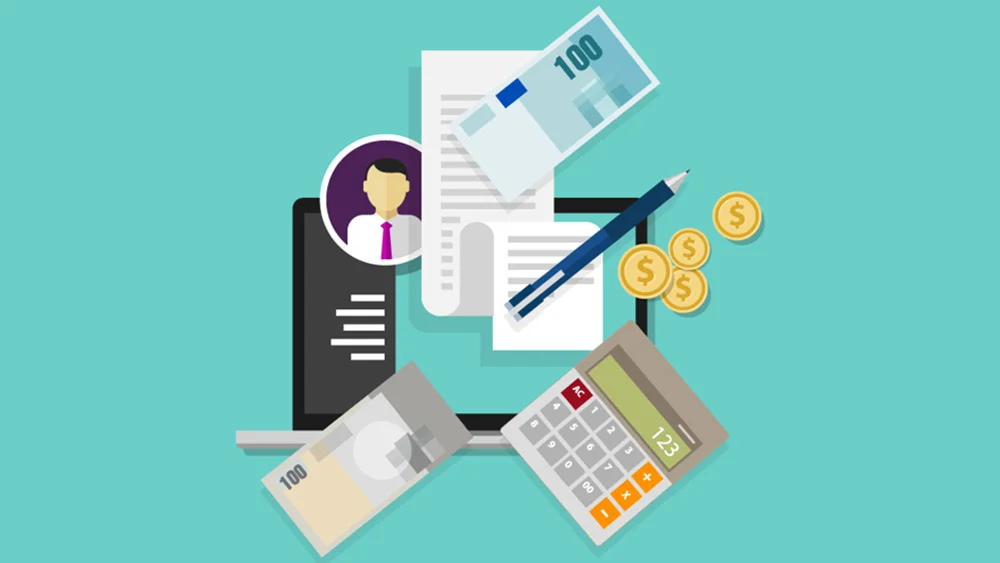Are you soon to be a homeowner, but feel like less-than-stellar credit could be in the way? Welcome to a large club. Many first-time home buyers have this exact problem, but the correct approach will have you cruising through a home loan. This blog will reveal the top ten mistakes that people can make when applying for a home loan with bad credit.
1. Overlooking Pre-Approval Importance
Getting pre-approved for a mortgage when applying for a home loan is one of the most important tasks that come in tandem with buying a house. A lot of potential buyers with bad credit overlook this crucial stage, thinking that their credit history will rule them out right from the very start.
Why it matters:
Pre-approval sets realistic expectations and strengthens your buying position. 80% of homebuyers who were pre-approved reported feeling more confident in their home-buying decisions. This confidence can be a game-changer, especially when you’re dealing with the added stress of a low credit score.
What to do instead:
- Apply to several lenders for pre-approval
- Use the pre-approval letter to guide your home search
- Show sellers that you are a serious, qualified buyer
Pre-approval acts like a financial compass in the right direction and leads to time savings, a way to look only at places well within your stated price range.
2. Errors in Credit Report
When you have bad credit, every point counts. Many borrowers make the mistake of assuming their credit reports are accurate without double-checking.
Why it matters:
Errors on your credit report can significantly impact your loan approval chances and terms. Disputing errors on your credit report can improve your score by as much as 100 points, potentially moving you from a bad to a fair credit category.
One common error is neglecting to review your credit report for unresolved issues, such as collections or judgments from companies like Cavalry Portfolio Services. If you have a collection account from cavalry spv llc debt it’s essential to address it before applying for a loan, as unresolved debts can significantly impact your creditworthiness.
If you discover a debt associated with Cavalry SPV LLC, it’s crucial to address it promptly, as such issues can significantly lower your credit score and negatively impact your loan application. One common mistake is failing to settle or negotiate outstanding debts with creditors, including Cavalry Portfolio Services LLC, before applying for a loan.
What to do instead:
- Request free copies of your credit reports from all three major bureaus
- Review reports carefully for inaccuracies
- Dispute any errors promptly and follow up on resolutions
3. Borrowing More Than Needed
While planning to buy a house, the temptation to do something sensible now—like make giant purchases or open new credit accounts is at an all-time high. But such steps can turn out to be too expensive for those who have bad credit.
Why It Matters:
New debts can throw you over the DTI threshold that most lenders are generally looking for. Ideally, lenders prefer a DTI ratio of 36 percent which leaves you in a good position for your best possible terms. This can throw you over that threshold, making you ineligible for a mortgage or forcing you to accept less desirable terms.
What to do instead:
- Avoid opening new credit accounts or making large purchases
- Focus on paying down existing debts
- Maintain a stable financial profile throughout the loan application process
4. Not Shopping Around for Better Rates
If you have bad credit, the mere act of being approved for a loan can be such a relief that you’ll jump at the first offer that comes your way.
Why it matters:
Comparing offers from multiple lenders can help borrowers save up to $3,000 over their lifetimes. Even with bad credit, you might be surprised to learn that at least a few lenders can offer pretty competitive interest rates for your situation.
What to do instead:
- Obtain quotes from at least three different lenders
- Compare interest rates, fees, and loan terms
- Consider working with a mortgage broker who can access multiple lenders
5. Insufficient Down Payment
Many prospective homebuyers with bad credit think they have to make a big down payment to offset their poor credit rating. This is a fallacy that delays dreams of homeownership unnecessarily.
Why It Matters:
While a larger down payment may offset the risk associated with bad credit, there are programs available to help buyers with low credit scores and minimal down payments. For example, FHA loans allow for down payments as low as 3.5% for borrowers with credit scores of 580 and above.
What to do instead:
- Research loan programs specifically designed for bad credit borrowers
- Consider FHA, VA, or USDA loans which may have more lenient requirements
- Explore down payment assistance programs in your area
6. Overestimating Your Budget
When you’re excited about buying a home, it’s easy to focus solely on the mortgage payment and overlook other associated costs.
Why it matters:
Homeownership involves more than just mortgage payments. On average, homeowners should budget an additional 1% of the home’s value annually for maintenance and repairs. Failing to account for these costs can lead to financial strain and potential mortgage default.
What to do instead:
- Calculate total homeownership costs, including taxes, insurance, and maintenance
- Use online calculators to estimate your full monthly housing expenses
- Leave room in your budget for unexpected costs and emergencies
7. Neglecting Loan Types Suitability
Not all mortgages are created equal, especially when it comes to bad credit borrowers. Overlooking specialized loan programs can mean missing out on better terms and easier approval.
Why it matters:
Different loan types have varying credit score requirements and benefits. FHA loans can accept scores as low as 580 for a 3.5% down payment, making them an excellent option for many bad credit borrowers.
What to do instead:
- Research various loan types (FHA, VA, USDA, conventional)
- Consult with lenders about programs specific to bad credit borrowers
- Consider government-backed loans, which often have more flexible requirements
8. Failing to Stabilize Your Employment
Job-hopping or inconsistent employment can raise red flags for lenders, especially when combined with bad credit.
Why it matters:
Lenders prefer applicants with stable, predictable income. Job changes within the last two years can raise red flags and affect loan approval chances. Stable employment demonstrates your ability to make consistent mortgage payments.
What to do instead:
- Maintain your current job throughout the loan application process
- If you must change jobs, try to stay in the same field
- Be prepared to explain any gaps or changes in your employment history
9. Underestimating the Importance of Cash Reserves
Many bad credit borrowers focus solely on saving for a down payment, neglecting to build additional cash reserves.
Why it matters:
Cash reserves demonstrate financial stability to lenders. Having at least three to six months of cash reserves can improve your chances of loan approval, especially when you have bad credit.
What to do instead:
- Save beyond your down payment and closing costs
- Aim for at least three months of mortgage payments in savings
- Document your savings to demonstrate your financial responsibility to lenders
10. Not Consulting with a Housing Counselor
Navigating the process of a home loan with bad credit is overwhelming. Not seeking professional help means missing out on valuable guidance for too many borrowers.
Why it matters:
HUD-approved housing counselors are experienced advisers to your situation. Housing counselors can help borrowers save an average of $1,000 on their home purchase by offering advice and resources.
What to do instead:
- Schedule a consultation with a HUD-approved housing counselor
- Take advantage of their knowledge about local programs and lenders
- Use their guidance to create a personalized action plan for homeownership
Comparison Table: Traditional vs. Bad Credit Home Loan Options
To help you understand your options better, here’s a comparison of traditional and bad credit home loan features:
| Features | Traditional Home Loan | Bad Credit Home Loan |
| Minimum Credit Score | 620+ | As low as 500 (FHA) |
| Down Payment | 20% recommended | 3.5% – 10% |
| Interest Rates | Lower | Higher |
| Loan Types | Conventional | FHA, VA, USDA |
| PMI Required | Only if <20% down | Usually required |
| Debt-to-Income Ratio | Up to 43% | Up to 50% (FHA) |
| Cash Reserves | 2-6 months recommended | 1-3 months minimum |
Conclusion
Though applying for a home loan with bad credit is surely accompanied by challenges, it is not impossible. If you can avoid common pitfalls and take some proactive steps toward enhancing your application, you can improve your chances. Remember that everyone’s financial situation is different, so what works for one borrower will not always work for another.
Always seek advice from financial professionals and housing counselors about your particular situation. You will soon overcome the odds of bad credit if you patiently pursue your dreams of owning a home in the right manner.
FAQs
What is the best way to improve my credit score before applying for a home loan?
When applying for a home loan, focus on paying down high balances and ensuring all existing debts are paid on time. Paying down high balances can improve your score, while timely payments account for your credit score calculation.
Can I buy a home with bad credit without a large down payment?
Yes, it’s possible. FHA loans require as little as 3.5% down for borrowers with credit scores of 580 and above, making homeownership accessible even with bad credit.
How does my debt-to-income ratio affect my home loan application?
Your debt-to-income ratio is crucial, showing lenders your ability to manage monthly payments alongside existing debts. A lower debt-to-income ratio is crucial; lenders typically prefer a ratio below, as higher ratios may lead to loan denials or unfavorable terms.






